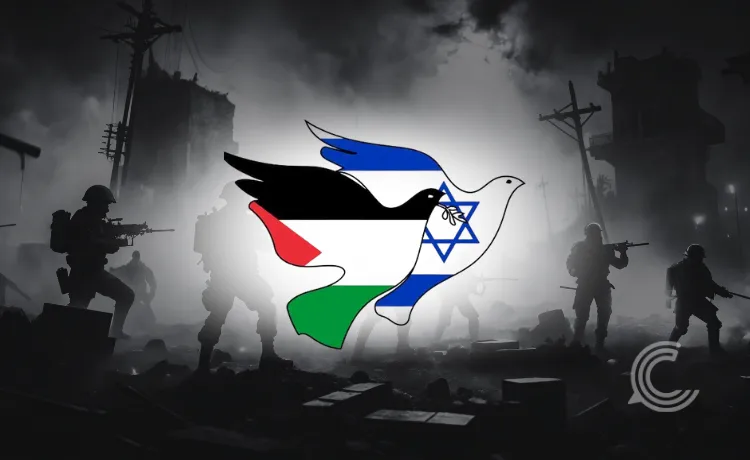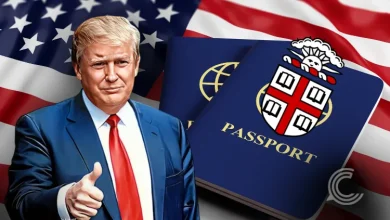Israel Hamas Talks Open in Egypt on a “Positive Note”

- Israel Hamas talks in Egypt for a long-term truce bid ended “positively but cautiously” on day one
- The talks quickly zeroed in on the completion of an agreement to trade Israeli hostages for Palestinian prisoners
- The negotiations are aimed at starting an U.S.-sponsored 20-point peace plan
- Hamas, which fears the ongoing Israeli anti-terror operations are endangering the captured Israelis, said that “the series of events in recent weeks is pushing us farther from a deal”
The first day of renewed, indirect talks between Israeli and Hamas delegations concluded on Monday in the Egyptian resort city of Sharm el-Sheikh, reportedly ending on a “positive” but cautious note.
Mediated by Egypt and Qatar, and backed by a strong American push, the high stakes talks will see a finalisation of the first phase of an US-supported 20-point plan that is meant to stop the two year old conflict in the Gaza Strip, reports said.
The opening day of the discussions on the eve of the second anniversary of Hamas incursion that sparked the war, heightened the precariousness and the inherent political risk in the matter of both sides.
Hamas leaders Khalil al-Hayya and Zaher Jabarin, who survived an Israeli assassination attack in Doha last month, which killed five people, were included in the delegation.
“The technical teams are discussing that as we speak, to ensure that the environment is perfect to release those hostages,”White House Press Secretary Leavitt said.
“Going over the list of both the Israeli hostages and also the political prisoners who will be released,” she added.
The Track to the Negotiation Table
The latest series of negotiations is the follow up to several years of diplomatic stalemates and escalating military actions. On October 7, 2023, Hamas-led militants attacked southern Israel killing about 1,200 people and taking 251 hostages which triggered the conflict. This was followed by a massive military operation by Israel that cost enormous destruction to Gaza. Moreover, Hamas-led health ministry has reported the death of more than 67,000 Palestinians.
The mistrust and non-negotiable nature of both parties is emphasized by previous ceasefire attempts, the most recent one being a short-lived November 2023 truce, which failed.
The present peace plan which is projected heavily by the U.S. President Donald Trump involves a gradual strategy, which will involve an instant ceasefire, the liberation of Israeli captives as a prize to Palestinian ones, and a humanitarian aid offensive.
Trump said Monday, “We have a really good chance of making a deal.” The President however asserted that he still has his own “red lines”.
“But I think we’re doing very well. And I think Hamas has been agreeing to things that are very important.”
The First Day of Israel Hamas Talks Concentration on Hostages and Aid
The technical discussions on Monday, which involved Hamas’s delegation led by Khalil al-Hayya and an Israeli team including senior intelligence and diplomatic officials, focused on the most immediate and politically palatable components, the exchange of prisoners and the delivery of humanitarian aid.
Mediators from Egypt and Qatar shuttled between the delegations to narrow the differences. The delegation mapped out a very basic roadmap for negotiations based on a draft that had already been discussed by all the parties.
President Trump called on all sides to “MOVE FAST,” emphasizing that the first phase, exchanging an estimated 48 remaining hostages for Palestinian prisoners, to be completed this week.
The sense of urgency is palpable, driven by the humanitarian crisis on the ground in Gaza and the political pressure on all negotiating sides. However, the Hamas delegation was quoted saying that they were worrying that Israel’s continued military attacks throughout Gaza had threatened the lives of the captives and hence had slowed the process of exchange.
The Underlying Chasm: The Survival Politics vs. the Existential Demands
The positive spin on day one largely concerns the logistics of the first prisoner exchange.. For Prime Minister Benjamin Netanyahu of Israel, securing the return of hostages is a political interest that his government may depend on.
For Hamas, the release of Palestinian prisoners and a formal cessation to the war offers a critical victory as well as a respite for reorganisation that much of its leadership had been seeking.



